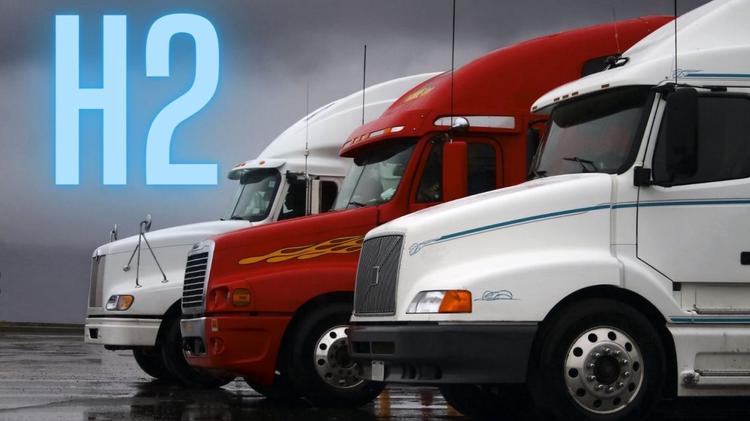
• Retrofitting existing vehicles to run on H2 allows fleet owners to reduce emissions and maintain current assets, saving money and reducing waste.
• Researchers from the University of New South Wales have developed a system that converts up to 90% of diesel operations, with an efficiency boost of 26%.
• This system does not require high-purity hydrogen fuel, as it uses a stratification technique to form pockets of higher and lower H2 concentrations, reducing nitrous oxide emissions.
Retrofitting systems allow vehicles and fleet owners to run existing engines on H2.
As good as it might sound to replace an entire fleet of diesel vehicles with hydrogen trucks in order to dramatically reduce a carbon footprint, most companies simply wouldn’t be able to afford that kind of investment all at once. This is particularly true when they already have vehicles that are still running just fine.
Conversions allow existing vehicles to run mainly on H2 instead of polluting diesel fuel.
That said, just because a company isn’t ready to replace its entire fleet, it doesn’t mean that hydrogen trucks are out of the question. Existing large fleets can continue to be used – not only saving money, but also reducing unnecessary waste – while drastically shrinking their greenhouse gas emissions by using conversions from diesel to H2.
In this way, companies can hold onto their existing assets and still decarbonize in order to join the fight against the climate crisis and keep compliant with newly adopted emissions regulations as they happen.
Researchers have been developing several types of retrofit systems for converting diesel to hydrogen trucks.
For instance, researchers from the University of New South Wales (UNSW) have prototyped and tested a retrofit system capable of converting diesel engines to run on 90 percent H2. This greatly reduces both the carbon dioxide and the nitrous oxide emissions from the vehicle’s operations while simultaneously providing a 26 percent efficiency boost.
This conversion does mean that the vehicle will need to continue to use diesel fuel for 10 percent of its operation. Therefore, it isn’t a fully green conversion. Still, what it provides is a way for businesses to slash the majority of their greenhouse gas emissions without trashing assets that can still remain useful for a long time. In this sense, the reduced waste offsets a considerable amount of the remaining emissions from the vehicle’s operations.
No Fuel Cells Needed
This system, like most retrofits converting diesel to hydrogen trucks and cars, does not involve the use of fuel cells, but is instead adds H2 injection directly into the cylinder. It also adds independent injection timing control for both the H2 and diesel systems. In the case of the system developed by the UNSW team, it also doesn’t require the hydrogen fuel to be high purity due to a stratification technique that forms pockets of higher and lower concentrations of H2. In this way, the nitrous oxide emissions are substantially reduced when compared to the operation of a diesel vehicle.